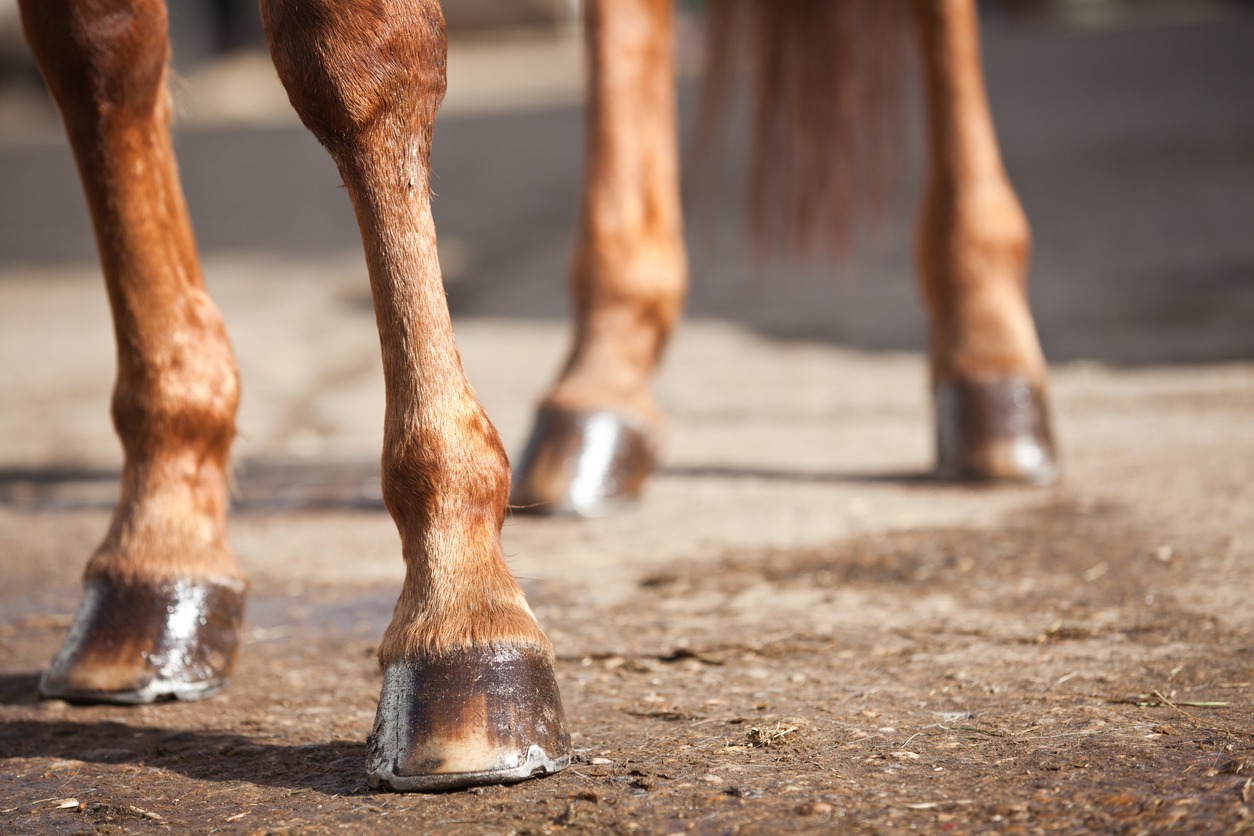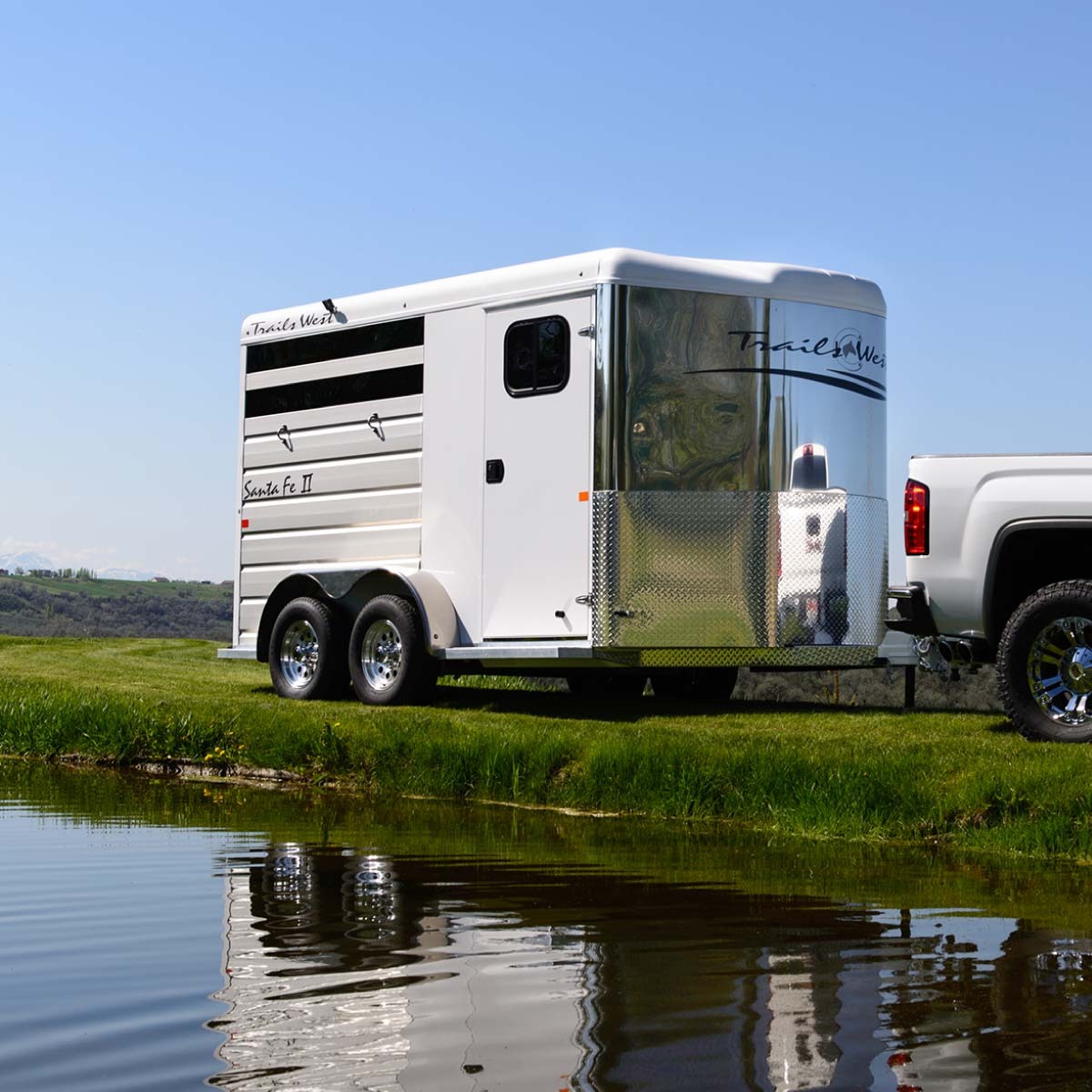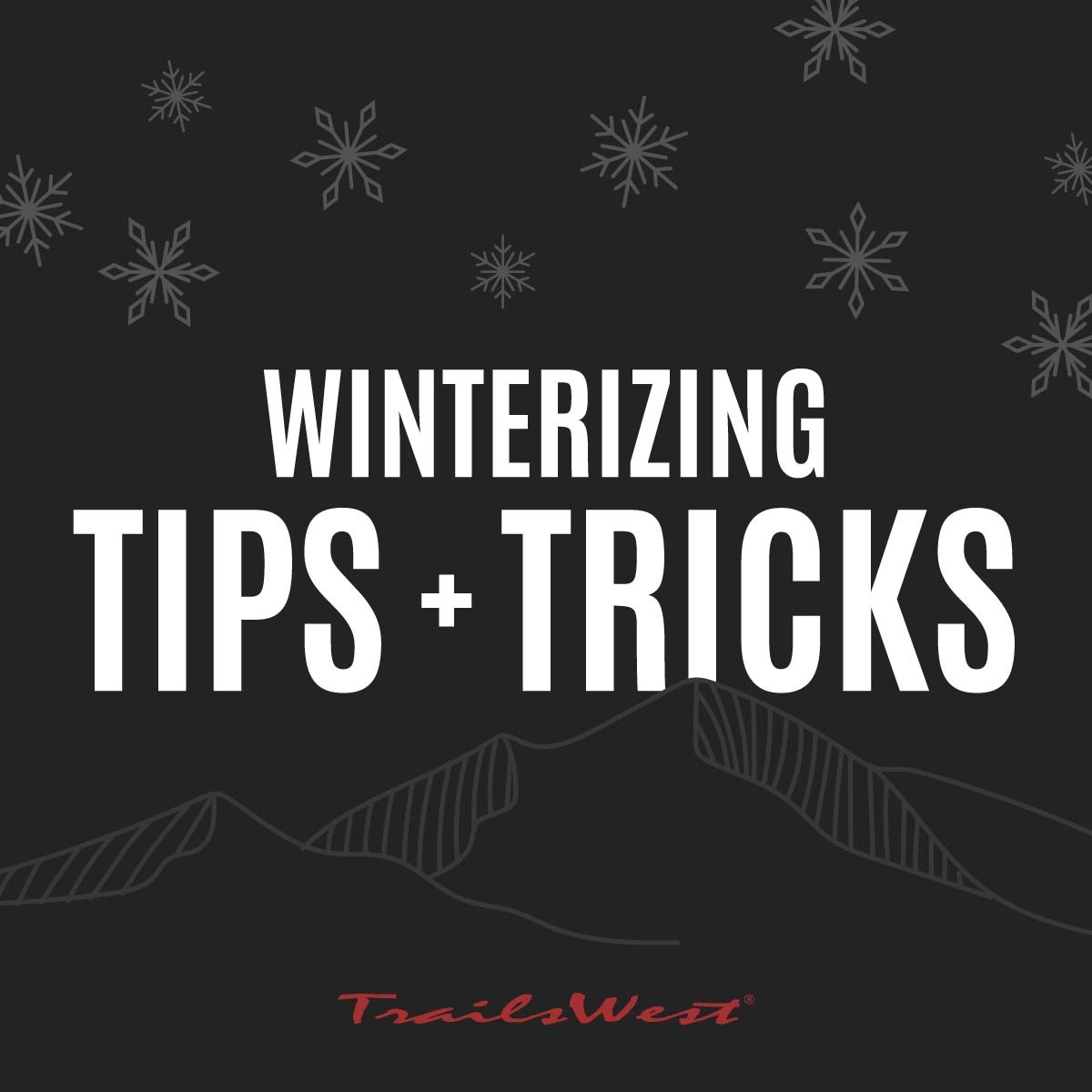Founder & Laminitis — The Healthy Hauling Series Part 4

Laminitis (founder) isn’t directly related to competitive riding or hauling in a horse trailer. But it’s common in competitive horses. Welcome to the fourth article in the Trails West Trailers Healthy Hauling Series. Here, we’ll address symptoms and management ideas for foundered horses. Then, we’ll propose some ideas for hauling foundered horses comfortably in your horse trailer.
What is Founder / Laminitis in Horses?
Laminitis can be caused by the calorie-rich grain diets fed to barrel racers, reiners, show horses, and halter stock, coupled with intense bursts of exercise during competition. It’s not an illness that can be “picked up” at a competition. But all competitive horses face a risk for it.
- Founder and laminitis are interchangeable terms.
- They refer to inflammation of the laminae — the Velcro-like soft tissues that connect the outer hoof wall (the part of the hoof you can see) to the pedal bone within.
- Founder is incredibly painful and potentially crippling.
In bad cases, founder leads to instability of the pedal (“coffin”) bone in the hoof, reducing soundness and usability as a riding horse. In the worst cases, the pedal bone rotates within the foot. This completely cripples the horse.
Founder Facts:
- Rich feed is directly related to laminitis. If your horse breaks into the grain room and gorges on 20 lbs of sweet feed, he might founder.
- Grass founder occurs in spring when hay-fed horses suddenly find themselves grazing on rich, new grasses.
- Many pony breeds are particularly susceptible to laminitis.
- Once a horse founders, it’s very likely — almost certain — that he will founder again.
- Laminitis can affect any hoof, but it’s usually one or both front legs that are affected.
Mild cases are challenging to diagnose without X-rays, but savvy equestrians develop an eye for a specific position: the founder stance. A laminitic horse may put all his weight on his back legs and extend one or both forelimbs to relieve the pressure on painful pedal bones. If you’ve never seen a foundered horse, do a few internet searches for images to educate your eye.
A history of founder is also made clear by a series of rings on a deformed hoof.
What to do for a Foundered Horse
Aside from the classic founder stance, a foundering horse will seem uncomfortable and their feet will feel hot to the touch. If you suspect founder, reach out to your vet immediately!
Once diagnosed, your vet will likely suggest that you:
- Change your feeding program: no more grain, very little grass, “low octane” hay-like Bermuda or meadow grass rather than alfalfa.
- Try a grazing muzzle or slow feeder.
- Turn your horse out on a grass-free area.
- Use pain management medications, like aspirin or “bute,” until he feels better.
- Try hydrotherapy (cold hosing) his legs for 15 minutes on, 15 minutes off to relieve heat and pain.
Laminitis is very serious. If this is your first founder case, don’t attempt to treat him without professional help. Call your vet!
Whether you’re retiring your foundered companion to the pasture up the road or heading to the vet, eventually you’ll need to haul him.
Tips for Hauling a Foundered Horse in a Horse Trailer
Your most seasoned campaigner might be reluctant to load during or after a bout of laminitis. Hauling puts a strain on his feet and legs, and he knows what’s coming. Try administering “bute” for a day or two before you plan on hauling him, and be sure your horse trailer has rubber mats on the floor. Top those with some shavings, and load him patiently. Some foundered horses will prefer to load on a ramp-style horse trailer.
- Consider leaving your horse untied in the trailer. He’ll have more room to shift his weight, or even turn completely around. A study by Iowa State University found that many horses prefer to travel rump-first if given the option. But we realize this might not work for every horse or every horse trailer.
- Give yourself extra time to haul your foundered horse slowly and thoughtfully. Try to make braking and turns as smooth as possible, and avoid rush hour traffic.
At Trails West Trailers, our customers are competitive and recreational riders at all levels and all disciplines. Our team understands your passion for equine sports, and we’re here to support you with the finest horse trailers and livestock trailers available. Contact us to learn more about them.
We hope you’ve enjoyed our dissertation on laminitis. Stay tuned for our next article in The Healthy Hauling Series: the Low-Down on Leg Wraps.
Related Reading & Resources:
RSPCA: What is Laminitis and How Can it be Prevented or Treated?
Virginia Tech: Avoiding Pasture Related Laminitis and Founder






